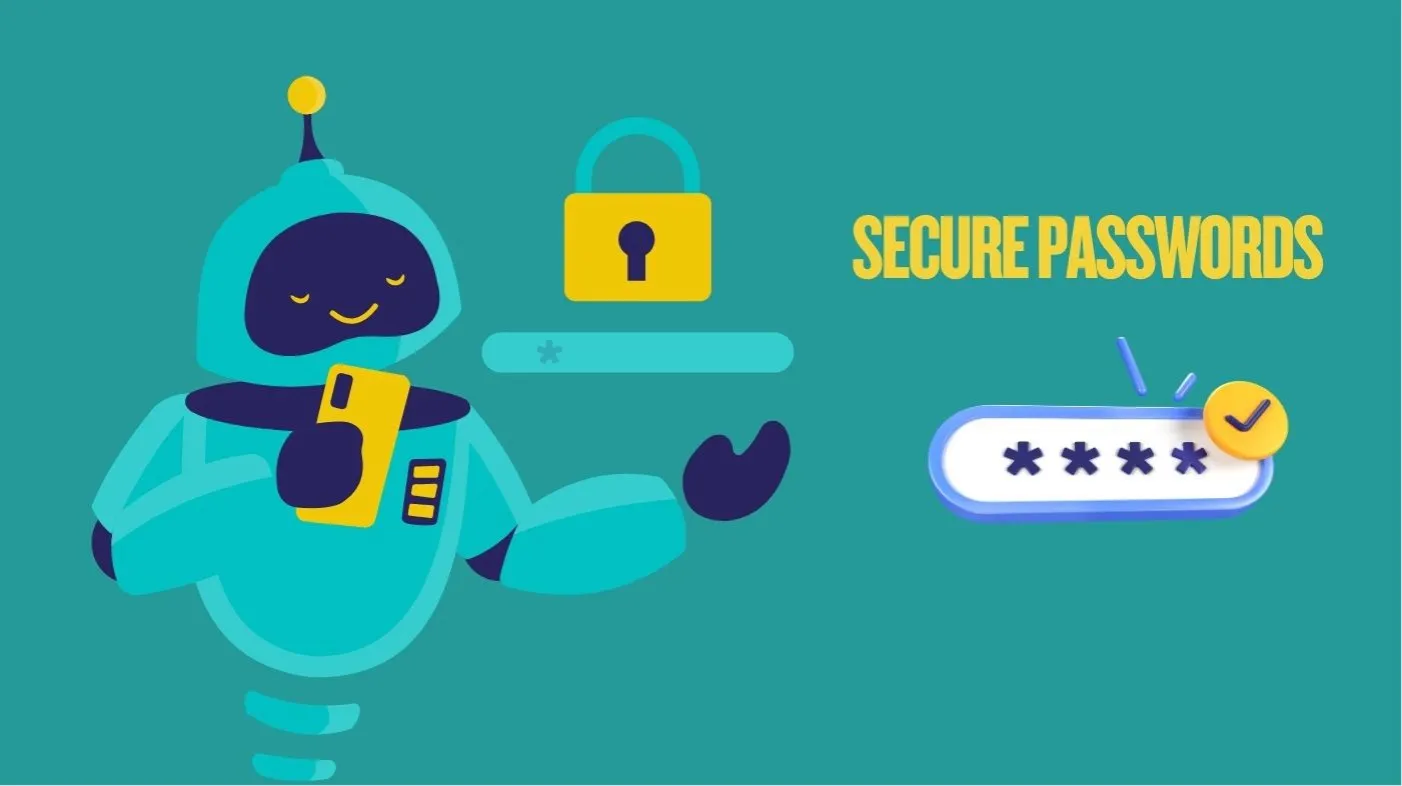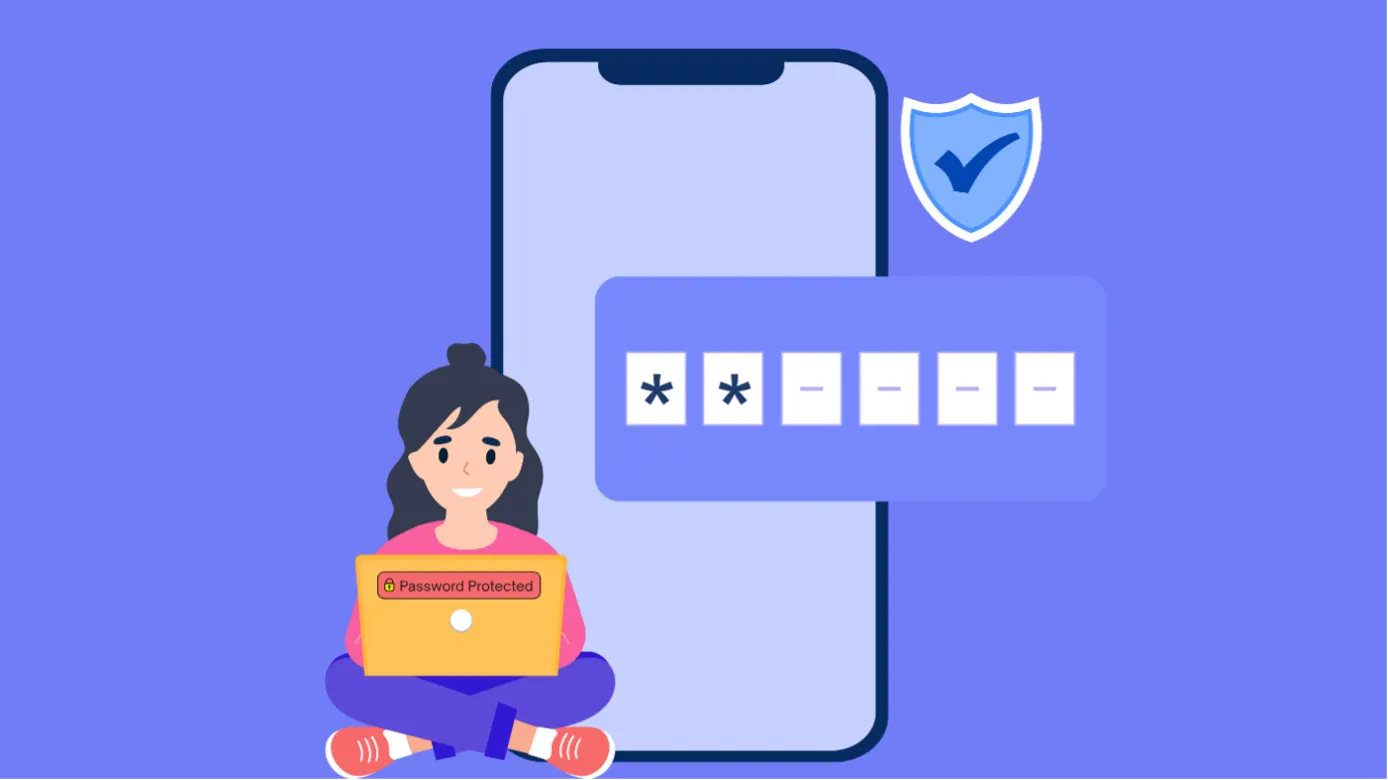
Creating secure passwords doesn’t have to be a daunting task, especially when you use passphrases. Passphrases offer a great balance between security and memorability, as they are longer, more complex, and easier to recall than random strings of characters.
To generate a secure passphrase, you have to keep a few key principles in mind. Choosing random, unrelated words is a great first step, as it makes the passphrase harder for attackers to guess.
You can also modify the phrase by incorporating numbers, special characters, and a mix of uppercase and lowercase letters to increase its strength.
In this article, we’ll discuss various techniques for creating strong passphrases, how to make them even more secure, and tips for remembering them without compromising your safety.
Creating Secure Passwords Using Phrases: A Practical Guide
To generate a secure password using phrases, you have to keep a few important strategies in mind. Below are some practical tips to enhance your passphrase:
Use a Random and Unpredictable Phrase
Creating a secure passphrase hinges on the selection of random and unrelated words. To start, choose four or more words that don’t connect in meaning. For instance, “easel venom aver flung” serves as an effective example due to its unpredictability.
This randomness is essential; the more unrelated your words are, the tougher it becomes for attackers to guess your passphrase.
Modify It with Character Substitutions
Modifying your passphrase with character substitutions greatly enhances its security.
Start by taking your base phrase and introducing variations in case, numbers, and special characters. For example, transform “easel venom aver flung” into “Easel!Venom2Aver#Flung.”
This technique not only makes your passphrase more complex but also greatly increases resistance against common hacking attempts.
When creating a password using random words, consider using unrelated terms to form a strong foundation. Integrating uppercase and lowercase letters disrupts predictable patterns, while numbers and special characters further obscure the phrase. Aim for a mix that feels memorable yet secure.
Use the First Letters of Each Word
A clever strategy for generating secure passwords involves using the first letters of each word in a memorable phrase. If you find it hard to remember longer passphrases, select a phrase that resonates with you.
For instance, the phrase “My dog loves to play outside every morning” can transform into “Mdltp@Emorning!” This method retains the essence of the original phrase while creating a password that’s more challenging to guess.
To enhance security further, consider incorporating numbers or special characters within the phrase.
Add Unrelated Words for Extra Security
While incorporating phrases into your passwords strengthens their security, adding unrelated words can elevate protection even further. Mixing in completely unrelated terms creates a passphrase that’s much harder for attackers to guess.
For instance, transform “Cactus Mountain Shoes#97” into “Cactus!Mountain#Shoe#97” or “Cactus&Mountain!97Shoes.” These variations disrupt patterns that common guessing tools might exploit.
Unrelated words act as extra layers of complexity, making your password more resilient against brute-force attacks. When crafting your passphrase, think of random, yet memorable, words to include.
This strategy not only enhances security but also helps you create a unique identifier that you can easily recall, striking a balance between memorability and robustness.
Make It Long
To enhance the security of your passwords, focusing on length is essential; longer passphrases greatly increase the difficulty for attackers attempting to crack them. Aim for a passphrase that’s at least 12 to 16 characters long.
Incorporating multiple random words not only adds complexity but also helps in creating a memorable phrase. Don’t hesitate to extend your passphrase as needed; the longer it is, the stronger the protection it offers. You can use a strong random password generator to create unpredictable and secure passphrases effortlessly.
For instance, phrases like “BlueSkyDrivesFastOnTuesdays” can be effective. This strategy not only complicates brute-force attempts but also minimizes the chances of guessing.
Avoid Common Phrases
Using common phrases for your passwords can greatly undermine their security, as attackers often target these predictable choices first.
Don’t rely on easily guessable phrases like popular lyrics or common sayings, even if you tweak them slightly. Attackers anticipate these modifications and will likely try them first.
Additionally, avoid using personal details such as your birthday or your pet’s name. This information is often readily available through social media, making it easy for attackers to guess.
Instead, consider creating a unique phrase by combining unrelated words or using a line from a lesser-known poem. The goal is to ensure your password is both memorable and unpredictable, greatly enhancing your overall security.
You can also use a password strength checker to evaluate its resilience against potential attacks and make necessary adjustments for better protection.
What if I prefer shorter passwords? Can I still make them secure?

How can you still guarantee your shorter password remains secure? You should not opt for short passwords, as they are inherently less secure because they limit the number of possible combinations an attacker can try, making them easier to guess.
While it’s always best to use longer passphrases for optimal security, if you prefer shorter passwords, you can still take steps to make them more secure.
A good approach is to use random, unrelated words and incorporate a mix of uppercase letters, numbers, and special characters. This will add complexity even if your password is shorter than the recommended length of 12-15 characters.
However, keep in mind that short passwords are always more vulnerable to attack, especially when using brute-force methods or sophisticated hacking tools.
So, while it’s possible to improve the security of a short password, the longer and more complex your password, the harder it will be for hackers to crack.
Is it safe to use the same passphrase for multiple accounts?
No, it is not safe to use the same passphrase for multiple accounts. If one account is compromised, hackers can potentially gain access to all other accounts using the same credentials.
This is especially risky due to tactics like credential stuffing, where cybercriminals use stolen usernames and passwords from data breaches to attempt logins on other websites.
If successful, this can lead to an account takeover, where a hacker can access sensitive information like your email, bank accounts, and social media profiles. Additionally, using the same passphrase increases the likelihood of hackers cracking your passwords if they manage to breach one account.
To ensure better security, it’s crucial to use unique, strong passphrases for each account, incorporating random and complex combinations.
How can I remember a secure passphrase?
What strategies can you employ to easily remember a secure passphrase? Start by crafting a phrase that holds personal significance yet remains random. For instance, think of memorable moments from a favorite trip or details about a beloved hobby. This connection will make the passphrase easier to recall.
Additionally, consider using a password manager to securely store and organize your passphrases. This way, you won’t need to memorize every complex combination. Regularly review and update your passphrases, as familiarity will enhance your recall ability.
Finally, practice saying your passphrase aloud or writing it down to reinforce memory retention. By using these techniques, you’ll guarantee your passphrase remains both secure and memorable.
Create Strong Passwords Using Memorable and Complex Passphrases
To conclude, crafting catchy and complex passphrases can greatly strengthen your security. By blending bizarre but memorable words with character substitutions, you’ll create a fortress of letters that’s hard to hack.
Also, remember to make your passphrases long, avoid common phrases, and never reuse them across multiple accounts. Incorporating these strategies will significantly boost your defense against cyber threats, ensuring your online safety remains solid and dependable.
Ultimately, prioritizing password protection is pivotal in preserving your personal privacy and digital safety.
